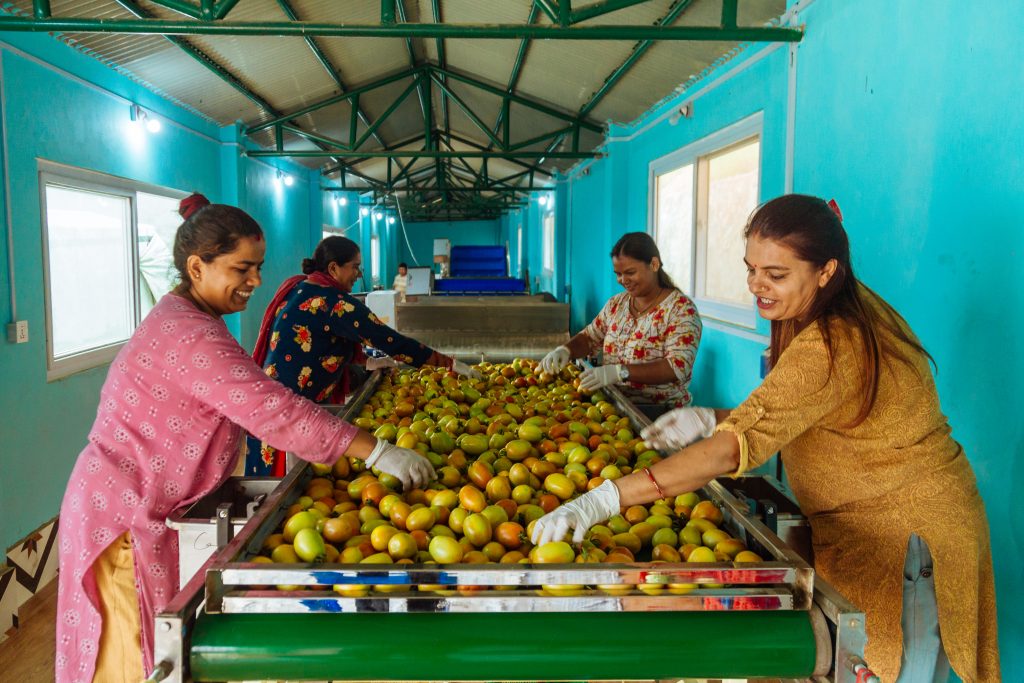Strengthening Smallholder Livestock Value Chains
Program Period: 2011-2030
Heifer Nepal’s Strengthening Smallholder Livestock Value Chains (SLVCII) Signature Program is transforming the agricultural ecosystem for smallholder farmers in Nepal. The program aims to scale up the enterprises of 125,000 directly participating families and an additional 350,000 families across 29 districts.It strengthens the institutional, governance, and financial management capacity of cooperatives, linking them with appropriate markets and consumer bases, while also building infrastructure to support these markets.

By enhancing access to business development services such as insurance, finance, and input supply, the program improves the overall enabling environment in collaboration with the Ministry of Agriculture and Livestock Development and private sector partners, focusing on the goat, dairy, vegetable, and local poultry value chains.
From traditional to improved, there has been a notable change in the farming practices of the small holder. SLVC has made a lasting improvement in animal housing, attention is also provided to the animal’s health with regular checkups, deworming and vaccination of animals.
SLVC has put an end to the traditional practice of haphazard grazing of animals in the jungles and has encouraged planting of nutritious fodder and forage in barren lands, reducing land degradation and carbon footprint.The cooperative has become a business hub for the smallholder farming families, bringing much needed services to the rural community. The services range from marketing to access to final to animal insurance. The SLVC project helped establish collection centers in the villages. These centers play a vital role in aggregation and collection marketing, reduced transaction costs and improved trading efficiency.
SLVC has undertaken a significant initiative to bridge the gap between the demand and supply of animal health services. For this, numerous individuals in project sites are trained to become Community Agrovet Entrepreneurs. These entrepreneurs play a crucial role in not only offering essential animal health services to farmers but also in elevating the status of agro-vet entrepreneurship within the community. Serving as vital pillars for farmers in building resilience against diseases affecting livestock, they actively motivate and guide farmers to embrace entrepreneurship, assisting them in establishing their own ventures within the community. In doing so, they not only address the immediate health needs of animals but also contribute to the empowerment and economic development of the local farming community.
With the help of the Agri transport vehicles, the cooperatives provide door-to-door collection service which reduces the hassle farmers face to arrange delivery vehicle for their produce. With the regular availability of Agri-transport, post-harvest loss is reduced which is a severe problem for perishable products. Moreover, the placement of agri-transport vehicles has started to increase members, business as well as coverage for the cooperatives, which is a milestone for expanding services of the cooperatives.

